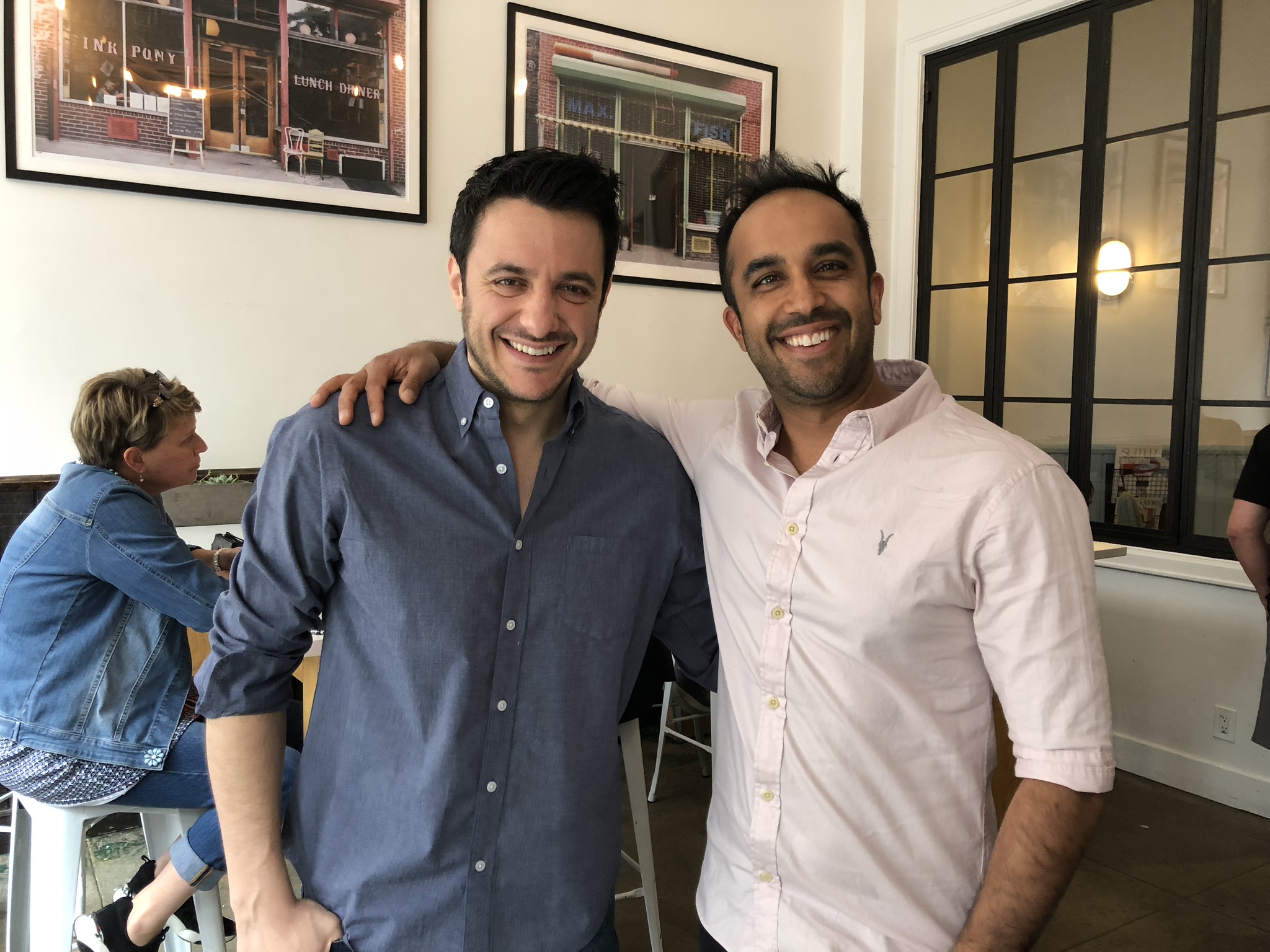I flew to NYC to chat with my friend Tim Urban, author of Wait But Why.
Pop quiz!
Who’s the first person who comes to mind when you think of the word philosopher?
Aristotle, Plato, Socrates … Karl Marx?
If you asked me today, the first person that comes to my mind is Tim Urban. Because a philosopher is someone engaged with the fundamental nature of knowledge, reality, and existence. Wrestling with the big questions! And sure, lots of folks are doing that. But I can’t think of anyone doing it better right now than Tim Urban.
Me and Tim at a little Manhattan coffee shop.
Tim Urban is co-founder and writer of the popular blog Wait Buy Why, which has over 1.5 million readers per month and scores of big-name fans including Elon Musk. Why? Because Tim has a beautifully simplistic way of distilling big, complex topics like artificial intelligence, picking a life partner, and, say, The Fermi Paradox, into simple language.
He’s an incredible teacher, an incredible philosopher. His TED Talk on procrastination is a great example of this, which has over 30 million views.
Our podcast set mid-coffee shop!
Tim’s intellectual curiosity is huge. Despite being a Harvard grad, Tim’s going against the grain of typical Harvard grads and spending his days writing long blog posts using simple words to explain big things. And we’re lucky enough to get a glimpse into how Tim’s brain works in Chapter 22.
We discuss breaking convention, retaining curiosity, Stitches vs Band-aids, why you should let your children wear shorts in the winter, the difference between cooks and chefs, and much, much more....
Join us over avocado toast in the corner of Ludlow Coffee Supply in Manhattan’s Lower East Side.
Listen to Chapter 22:
Click here to Subscribe on Apple Podcasts, Stitcher, Overcast, Spotify, Youtube or Google Play.
What You'll Learn:
Why should you let your kids wear shorts in the winter?
Why is it important to separate art from the artist?
How can conservatism and progressivism work together?
How can we learn to break free from normalcy and follow our own paths?
How can we tell if old wisdom is still useful or if it no longer applies?
What’s the difference between reasoning with first principle versus reasoning by analogy?
How can we learn to appreciate children’s curiosity and tendency to ask ‘why’?
If someone is remorseful of something, does that mean they deserve forgiveness?
How can we make things people love, instead of things people already have?
notable quotes from tim urban:
“Awake is interesting. Sleep is boring.” Tim Urban of @waitbuywhy #3bookspodcast
CONNECT With Tim:
word of the chapter:
Resources Mentioned:
Tim’s first book [13:40]
Tim’s second book [36:59]
Tim’s third book [1:01:28]
The Black Swan by Nassim Taleb
Why I Walk by Nassim Taleb
The Book with No Pictures by B.J. Novak
The Giver by Lois Lowry
Tales of a Fourth Grade Nothing by Judy Blume
Superfudge by Judy Blume
Atlas Shrugged by Ayn Rand
Sapiens by Yuval Harari
A Short History of Nearly Everything by Bill Bryson
A Brief History of Time by Stephen Hawking
A Little History of the World by E.H. Gombrich
Lolita by Vladimir Nabokov
Enlightenment Now by Steven Pinker
Infinite Jest by David Wallace







